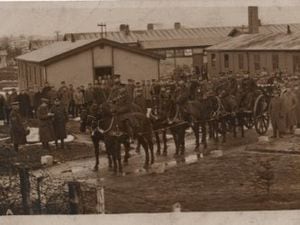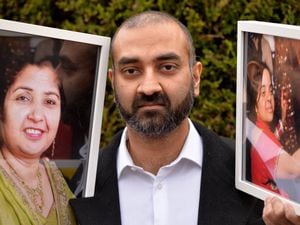Senior West Midlands policeman still suffering flashbacks one year after ICU Covid battle
“It’s hard because the thing that got me hasn’t gone anywhere – it’s not like I’ve been run over and I’ve got over it. Covid is all anyone can talk about, it all feels a bit inescapable.”
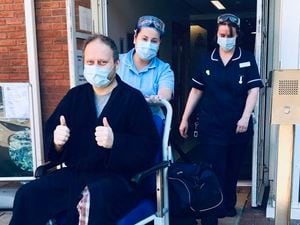
These are the words of a senior police officer in the West Midlands who spent nearly two weeks in intensive care fighting coronavirus at the start of the pandemic.
Chief Superintendent Phil Dolby is still suffering with mental health issues a year on, after he was admitted to hospital just days after the first lockdown was announced.
Chief Supt Dolby was taken to Worcestershire Royal Hospital on March 29, 2020, after showing symptoms of Covid-19. Days later, the father-of-three was placed on a ventilator in intensive care as he was unable to breathe for himself and the oxygen levels in his blood had plummeted.
The 46-year-old spent around a fortnight in intensive care at the hospital, most of the time heavily sedated, as doctors and nurses kept him alive while his body fought back against the virus on a ventilator after being admitted on March 29.
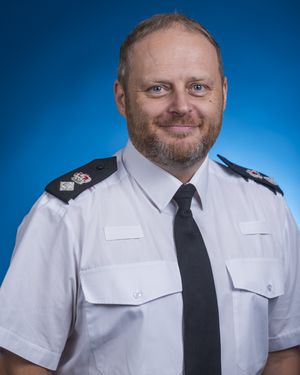
But on April 21, he was able to ring the hospital ward bell in front of delighted NHS staff, as he was discharged to continue his recovery back home with his loved ones.
Chief Supt Dolby, who was made the head of West Midlands Police’s Criminal Justice Services team just two months before becoming ill, said he is physically fitter now than he was before he became ill, but he has struggled mentally since his time in hospital.
He said: “I’ve been very lucky I’m back to physical fitness, if not a bit fitter than I was before – a good way to lose weight is to get into a coma as you can’t eat.
"Long term it's been quite a bit of mental anguish. I've had ICU delirium where patients suffer with flashbacks. The medication that they use to keep you under has a significant mental psychological impact. I had five particular narratives that I was convinced were real, then I've got four or five more that I still have flashbacks to. It's pretty scary stuff so I've had some help, my job has been kind enough to pay for some support.
"I'm part of a monthly Zoom group with other patients who all feel the same way. The consultants dial in too, I couldn't speak enough for the care I had in hospital, they were so brilliant from cleaners to nurses to consultants.
“We’ve named one of our police dogs PD Royal and PD Prayer as we had people praying all around the world. They asked me to go to the hospital trust meeting as an ex-patient and I gave some feedback that one of the things my wife said that it was hard getting information, but I made suggestions which they are now following so people can now Skype their loved ones.
“I took part in a DNA trial that is helping to understand why some people get it more heavily than others, so hopefully that helps. And I’m still on blood thinners as in hospital I got such bad blood clots. I’ve had my jab a couple of weeks ago.”
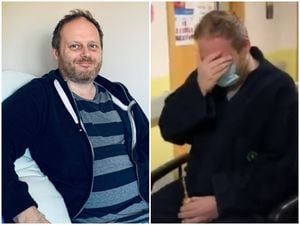
Chief Supt Dolby, who has been on the force for more than two decades including a period as a Detective Chief Inspector in Dudley, said his first memory of being in hospital was after waking up from the coma.
“It wasn’t that scary initially as I went into A&E and was awake for 36 hours but I have no memory of that at all,” he said.
“My first memory is being held down while they pulled my tube out my throat. My wife and my kids were very aware. I went into hospital on my daughter’s birthday and that’s about to be a year. They had a call when I was there saying I wasn’t going to make it and they were fighting every day for information so they went through a lot in a different way."
He also said he didn’t experience the first lockdown due to being in hospital, and while he prepared for the pandemic in work he did not expect it would affect him personally.
He added: “I’m a head of department in the force so I got us all together at the end of February last year to plan what we would do if it became a pandemic. We started to do early planning but not thinking it would touch near my life, more a business decision.”
Chief Supt Dolby returned to work in the summer but had to take more time off due to mental health issues and returned once again in January.
He said: “My colleagues look really tired and a bit fed up of being criticised all the time and being on the front line and dealing with people who have unhelpful attitudes to the virus. They're still humans who have worries for their own health."
When asked what he would say to those who don't follow the rules or are refusing the vaccine, Chief Supt Dolby said: "If you find it an inconvenience for a piece of cloth to be on your face for five minutes or a jab on your arms for a second, how will you find it having a tube down your throat for weeks?"
After lockdown, he is looking forward to spending time with loved ones.
"I'm a big hugger so I'm desperate to sit on the cricket ground and have a beer and speak to my mates. And to go away for a weekend with my wife Mary who has been amazing, she's my hero."

